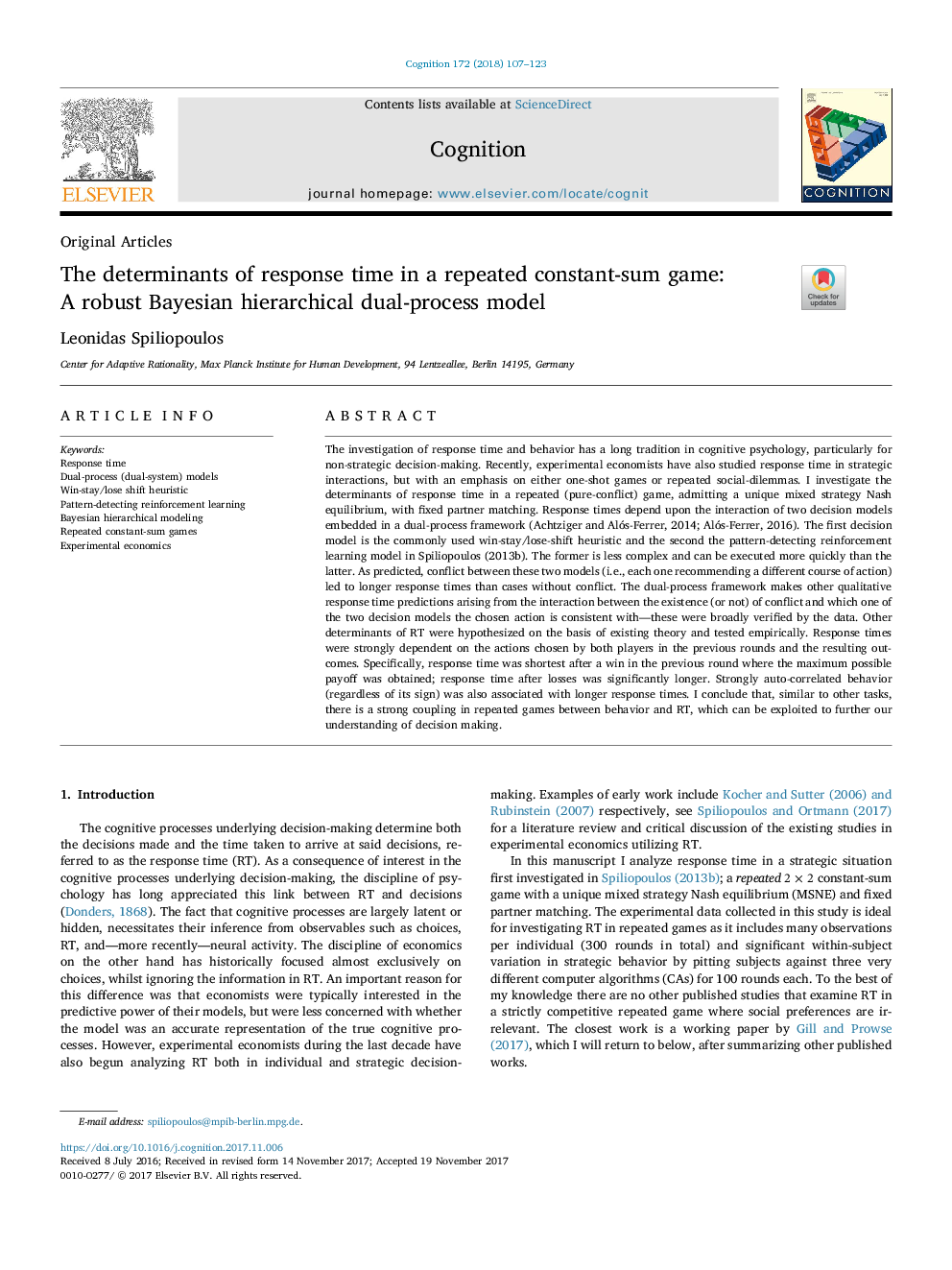ترجمه فارسی عنوان مقاله
عوامل تعیین کننده زمان پاسخ در یک بازی ثابت ثابت: یک مدل دو بعدی فرایند سلسله مراتبی قوی بیزی
عنوان انگلیسی
The determinants of response time in a repeated constant-sum game: A robust Bayesian hierarchical dual-process model
| کد مقاله | سال انتشار | تعداد صفحات مقاله انگلیسی |
|---|---|---|
| 150751 | 2018 | 17 صفحه PDF |
منبع

Publisher : Elsevier - Science Direct (الزویر - ساینس دایرکت)
Journal : Cognition, Volume 172, March 2018, Pages 107-123
ترجمه کلمات کلیدی
زمان پاسخ، مدل های دوگانه (سیستم دوگانه)، پیروزی ماندن / از بین بردن شیفت اکتشافی، الگوی تشخیص تقویت یادگیری، مدل سازی سلسله مراتبی بیزی، تکراری ثابت بازی ها، اقتصاد تجربی،
کلمات کلیدی انگلیسی
Response time; Dual-process (dual-system) models; Win-stay/lose shift heuristic; Pattern-detecting reinforcement learning; Bayesian hierarchical modeling; Repeated constant-sum games; Experimental economics;

